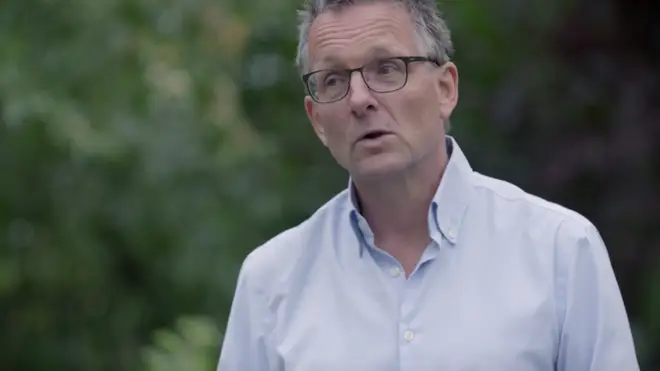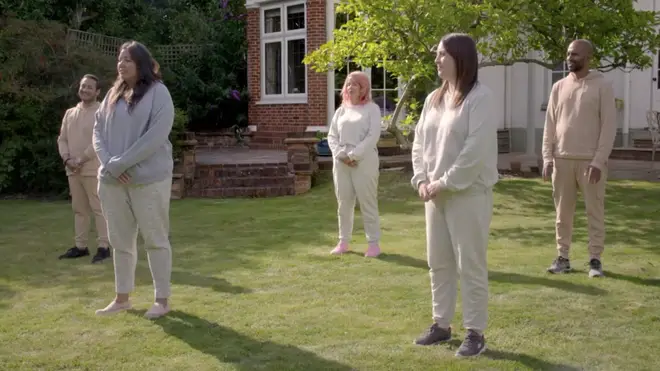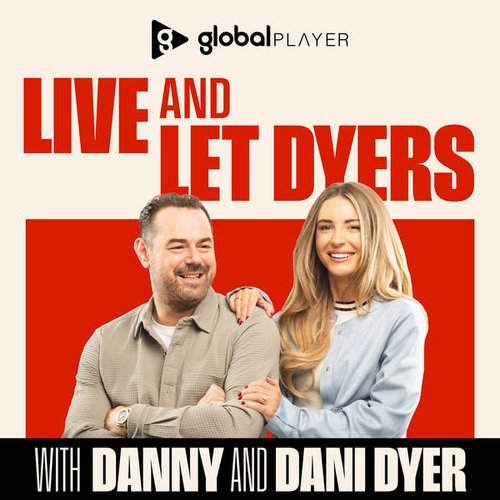How to Lose a Stone in 21 Days branded 'dangerous' as volunteers lose six stone in three weeks
20 August 2020, 12:46 | Updated: 20 August 2020, 12:51

The Channel 4 Michael Mosley show How to Lose a Stone in 21 Days has continued to receive criticism this week.
Michael Mosley's How to Lose a Stone in 21 Days has been branded 'dangerous' by some viewers and 'alarming' by eating disorder charity Beat.
The show has been focusing around five participants who are looking to lose weight and improve their BMIs using Michael's 800-calories-per-day technique.
During last night's show, the volunteers found out they had lost six stone between them in three weeks.
However, the show has seen a huge amount of criticism from viewers, with some claiming the "crash dieting" is affecting people with eating disorders.
READ MORE: This Morning viewers slam Gyles Brandeth's ‘bad taste’ coronavirus joke

Recently, eating disorder charity Beat told Metro.co.uk that they had seen a 51 per cent increase in calls to their hotline after the show aired on Channel 4.
Michael has defended the show, telling viewers that this is "not crash dieting" and is instead about "lifestyle changes".
He said: "People say that rapid weight loss is dangerous, but it's not if it is healthy eating."

During last night's episode, people continued to call out the show on Twitter, with one person commenting: "I kept an open mind about #howtoloseastonein21days but crash diets from professional doctors, really?"
Another wrote: "I just hope the creators of #howtoloseastonein21days have learnt from their mistake and never air that s**t ever again."
In response to the show being aired on Wednesday nights, Beat have been leaving their help lines open until 11pm in order to be able to support people.
“People say that crash dieting is dangerous but we’ve just proved that if it’s done correctly, it’s not”. Do @Channel4 know what kind of message this is sending. Outrageous #loseastonein21days
— Will Davy (@Dillwavy) August 19, 2020
This is so important. #loseastonein21days is a dangerous show that should never have seen the light of day. https://t.co/hAd4xttyc8
— benallthetime (@benallthetime) August 19, 2020
Caroline Price, Beat's Director of Services, said on the show: "It is incredibly worrying to see a national programme yet again promoting extreme weight loss and crash dieting.
"The promise inherent in the title is likely to attract people suffering from or vulnerable to eating disorders and risks encouraging those affected to attempt the methods shown despite the damage this could cause.
Channel 4 spoke to @beatED long before the programme went out & provided links on the support page before the first ep. More than 800 people who are overweight or obese have taken part in randomised clinical trials of the 800 calorie approach with striking improvements in health https://t.co/aB7Q0W8o1G
— Michael Mosley (@DrMichaelMosley) August 12, 2020
She continued: "Research has shown that dietary restraint, including the restriction of calories, has been found to be a risk factor in the development of an eating disorder. The programme did not appear to look after the participants’ mental health in any way, such as consultations with a psychiatrist. However, it did have an alarming focus on the participants’ weight, BMI and measurements, as well as encouraging them to carry out activities that we know those affected by eating disorders may engage in, such as destroying food to avoid eating it or fixating on eating a restricted number of calories.
"We wrote to Channel 4 in advance of the programme voicing our concerns and providing guidance on reporting in a responsible and non-triggering way. In fact, the programme caused enough stress and anxiety to our beneficiaries that we extended our Helpline hours to support anyone affected and received 51% more contact during that time.
"It is very disappointing that once again, their needs have been ignored by broadcasters."
Michael Mosley has defended himself on his Twitter page, writing to his followers: "Channel 4 spoke to @beatED long before the programme went out & provided links on the support page before the first ep. More than 800 people who are overweight or obese have taken part in randomised clinical trials of the 800 calorie approach with striking improvements in health."



































